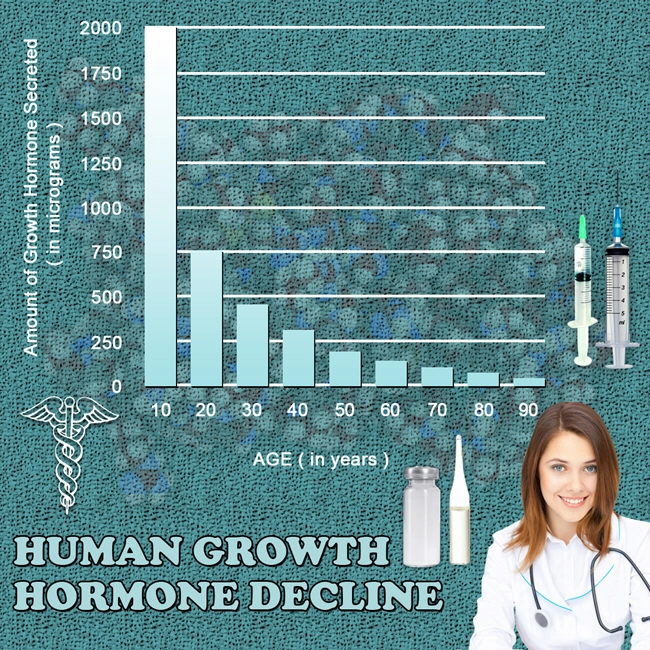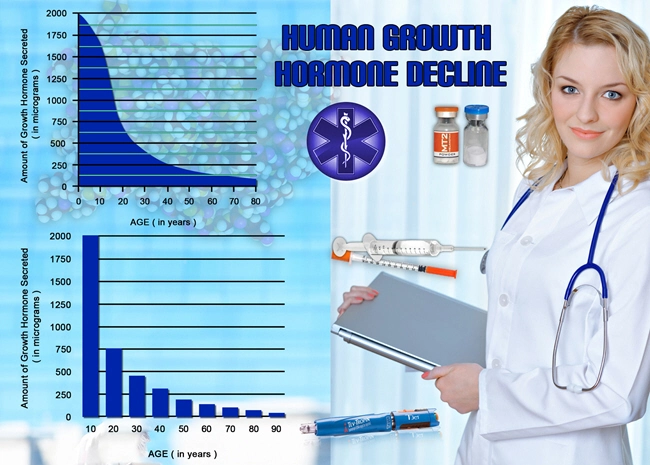

Introduction to Tamoxifen in Cancer Therapy
Tamoxifen has long been a cornerstone in the treatment of hormone receptor-positive breast cancer in both premenopausal and postmenopausal women. As a selective estrogen receptor modulator (SERM), tamoxifen's efficacy hinges on its ability to competitively inhibit estrogen binding to estrogen receptors, thereby impeding the growth-promoting effects of estrogen on the tumor. Despite its success, resistance to tamoxifen remains a significant hurdle, leading to treatment failure and disease progression in a subset of patients. Understanding the mechanisms behind tamoxifen resistance is crucial for developing more effective therapeutic strategies.
Genetic and Molecular Bases of Resistance
Research has identified several mechanisms that may contribute to the development of tamoxifen resistance. One primary area of focus is changes in the expression and function of the estrogen receptor (ER). Mutations in the ESR1 gene, which encodes the ER, can alter the receptor's structure so that tamoxifen no longer effectively inhibits its activity. Additionally, the overexpression of proteins involved in cell survival and growth pathways, such as HER2/neu and the PI3K/Akt/mTOR pathway, can also promote resistance by providing alternative survival signals that bypass the ER blockade.
Epigenetic Modifications Leading to Resistance
Epigenetic changes are another critical area of interest. These modifications do not alter the DNA sequence but instead affect gene expression. Methylation of the promoter regions of genes critical for the cellular response to tamoxifen can lead to their silencing and may contribute to resistance. Similarly, modifications to histones and chromatin structure can also impact the expression of genes involved in mediating tamoxifen's effects.
The Role of Microenvironment and Metabolic Changes
The tumor microenvironment can also influence tamoxifen resistance. Factors secreted by surrounding cells, including growth factors and cytokines, can activate signaling pathways that promote tumor growth and survival independent of estrogen signaling. Additionally, changes in the metabolic profile of tumor cells, such as increased reliance on glycolysis (the Warburg effect), may also support resistance mechanisms.
Implications for Treatment and Future Research
Understanding these resistance mechanisms not only helps in predicting which patients are likely to develop resistance but also guides the development of new therapeutic strategies. For instance, combining tamoxifen with inhibitors that target other pathways involved in tumor growth (like mTOR inhibitors) could overcome resistance. Furthermore, the use of next-generation sequencing and other advanced technologies to profile tumors could help in identifying resistance mechanisms early, allowing for personalized treatment adjustments.
Conclusion: A Call to Action for Researchers
The battle against tamoxifen resistance is not solely clinical—it's a significant research frontier. Continued investigation into the molecular underpinnings of resistance will be essential for the next leaps in treatment efficacy. American males, often underrepresented in breast cancer studies, must also be considered in research designs and treatment strategies, as male breast cancer, although rare, typically presents with hormone receptor positivity. This inclusion could provide broader insights into the disease and its management across populations.
In conclusion, while tamoxifen has dramatically improved breast cancer outcomes, resistance remains a daunting challenge. By delving deeper into the genetic, molecular, and environmental factors contributing to this resistance, researchers can pave the way for more robust and effective therapeutic regimens. This endeavor not only promises to enhance breast cancer management but also serves as a model for addressing resistance mechanisms in other cancers.
Contact Us Today For A Free Consultation
Dear Patient,
Once you have completing the above contact form, for security purposes and confirmation, please confirm your information by calling us.
Please call now: 1-800-380-5339.
Welcoming You To Our Clinic, Professor Tom Henderson.

- Tamoxifen: A Key Advance in Treating Male Breast Cancer in the US [Last Updated On: February 20th, 2025] [Originally Added On: February 20th, 2025]
- Tamoxifen: Key to Reducing Breast Cancer Recurrence in American Males [Last Updated On: February 27th, 2025] [Originally Added On: February 27th, 2025]
- Understanding the Pharmacodynamics and Sidelines: A Thorough Scrutiny of Tamoxifen [Last Updated On: March 2nd, 2025] [Originally Added On: March 2nd, 2025]
- Exploring the Multifaceted Role of Tamoxifen: From Breast Cancer Treatment to Emerging Medical Applications [Last Updated On: March 3rd, 2025] [Originally Added On: March 3rd, 2025]
- Exploring Tamoxifen's Role in Male Health and Long-Term Safety Concerns [Last Updated On: March 4th, 2025] [Originally Added On: March 4th, 2025]
- Exploring Tamoxifen Therapy in Men: Benefits, Mechanisms, and Health Implications [Last Updated On: March 5th, 2025] [Originally Added On: March 5th, 2025]
- Exploring Tamoxifen's Role in Treating Hormone-Sensitive Cancers in Adolescent Males [Last Updated On: March 6th, 2025] [Originally Added On: March 6th, 2025]
- The Role of Tamoxifen in Treating Male Breast Cancer: Benefits, Side Effects, and Awareness [Last Updated On: March 7th, 2025] [Originally Added On: March 7th, 2025]
- The Dual Role of Tamoxifen in Preoperative and Postoperative Care for American Males [Last Updated On: March 9th, 2025] [Originally Added On: March 9th, 2025]
- Optimizing Tamoxifen Dosage for Effective Breast Cancer Treatment in American Males [Last Updated On: March 12th, 2025] [Originally Added On: March 12th, 2025]
- Exploring the Efficacy of Tamoxifen in Pediatric Cancer Treatment: A New Frontier in Oncology [Last Updated On: March 13th, 2025] [Originally Added On: March 13th, 2025]
- Unraveling the Biochemical Mechanisms of Tamoxifen in Treating Hormonal Cancers Among American Males [Last Updated On: March 14th, 2025] [Originally Added On: March 14th, 2025]
- Unveiling the Risks: A Comprehensive Look at Long-Term Tamoxifen Use in American Males [Last Updated On: March 15th, 2025] [Originally Added On: March 15th, 2025]
- Tamoxifen: Managing Drug Interactions in American Males with Breast Cancer [Last Updated On: March 18th, 2025] [Originally Added On: March 18th, 2025]
- Tamoxifen's Efficacy and Role in Treating Male Breast Cancer in American Males [Last Updated On: March 19th, 2025] [Originally Added On: March 19th, 2025]
- Tamoxifen: A Comprehensive Guide for American Men's Breast Cancer and Estrogen-Related Conditions [Last Updated On: March 19th, 2025] [Originally Added On: March 19th, 2025]
- Tamoxifen's Role in Cancer Treatment: Insights for American Males from Experimental Studies [Last Updated On: March 19th, 2025] [Originally Added On: March 19th, 2025]
- Tamoxifen for American Males: Breast Cancer Treatment and Prevention Insights [Last Updated On: March 19th, 2025] [Originally Added On: March 19th, 2025]
- Tamoxifen in Male Breast Cancer: Side Effects and Management Strategies [Last Updated On: March 19th, 2025] [Originally Added On: March 19th, 2025]
- Tamoxifen's Role in Reducing Mortality in Male Breast Cancer: Mechanism, Efficacy, Adherence [Last Updated On: March 19th, 2025] [Originally Added On: March 19th, 2025]
- Tamoxifen's Evolving Role in Male Breast Cancer: Treatment, Prevention, and Personalized Medicine [Last Updated On: March 20th, 2025] [Originally Added On: March 20th, 2025]
- Tamoxifen in American Males: Benefits, Risks, and Management Strategies [Last Updated On: March 20th, 2025] [Originally Added On: March 20th, 2025]
- Tamoxifen's Efficacy in American Males with Hormone-Positive Breast Cancer: Treatment and Prevention [Last Updated On: March 21st, 2025] [Originally Added On: March 21st, 2025]
- Tamoxifen's Role in Men's Health: Managing Estrogen-Related Conditions [Last Updated On: March 21st, 2025] [Originally Added On: March 21st, 2025]
- Tamoxifen: Revolutionizing Breast Cancer Treatment for American Men [Last Updated On: March 21st, 2025] [Originally Added On: March 21st, 2025]
- Tamoxifen's Role in Male Hormone Therapy: Benefits and Considerations for American Men [Last Updated On: March 21st, 2025] [Originally Added On: March 21st, 2025]
- Tamoxifen in American Males: Benefits and Risks for Recurrent Cancer Treatment [Last Updated On: March 22nd, 2025] [Originally Added On: March 22nd, 2025]
- Tamoxifen: A Vital Treatment for Hormone Receptor-Positive Breast Cancer in American Men [Last Updated On: March 23rd, 2025] [Originally Added On: March 23rd, 2025]
- Tamoxifen: Revolutionizing Breast Cancer Treatment for American Males [Last Updated On: March 23rd, 2025] [Originally Added On: March 23rd, 2025]
- Tamoxifen in Men: Benefits, Risks, and Management Strategies [Last Updated On: March 23rd, 2025] [Originally Added On: March 23rd, 2025]
- Tamoxifen's Promising Role in Treating Leukemia in Male Patients [Last Updated On: March 23rd, 2025] [Originally Added On: March 23rd, 2025]
- Tamoxifen: Key Cancer Treatment for American Males, Mechanism, and Efficacy [Last Updated On: March 24th, 2025] [Originally Added On: March 24th, 2025]
- Personalizing Tamoxifen Therapy for American Men: Pharmacogenomics and Breast Cancer Treatment [Last Updated On: March 24th, 2025] [Originally Added On: March 24th, 2025]
- Long-Term Effects of Tamoxifen on American Women's Health: A Comprehensive Review [Last Updated On: March 24th, 2025] [Originally Added On: March 24th, 2025]
- Tamoxifen's Potential in Treating Rare Cancers in American Males: A Promising Approach [Last Updated On: March 24th, 2025] [Originally Added On: March 24th, 2025]
- Tamoxifen: Revolutionizing Breast Cancer Treatment in Men and Women [Last Updated On: March 24th, 2025] [Originally Added On: March 24th, 2025]
- Tamoxifen's Impact on Bone Health in American Males: Strategies for Preservation [Last Updated On: March 24th, 2025] [Originally Added On: March 24th, 2025]
- Tamoxifen: A Therapeutic Option for Hormone-Related Gynecomastia in American Males [Last Updated On: March 24th, 2025] [Originally Added On: March 24th, 2025]
- Tamoxifen in American Men: Managing Drug Interactions for Optimal Therapy [Last Updated On: March 25th, 2025] [Originally Added On: March 25th, 2025]
- Tamoxifen Therapy: A Preventive Breakthrough for Male Breast Cancer in America [Last Updated On: March 25th, 2025] [Originally Added On: March 25th, 2025]
- Tamoxifen's Role in Treating and Preventing Male Breast Cancer: A Comprehensive Overview [Last Updated On: March 25th, 2025] [Originally Added On: March 25th, 2025]
- Tamoxifen's Impact on Ovarian Function and Fertility in Breast Cancer Treatment [Last Updated On: March 25th, 2025] [Originally Added On: March 25th, 2025]
- Tamoxifen: A Vital Treatment for Male Breast Cancer in the US [Last Updated On: March 25th, 2025] [Originally Added On: March 25th, 2025]
- Managing Estrogen Fluctuations in American Males with Tamoxifen: A Comprehensive Overview [Last Updated On: March 25th, 2025] [Originally Added On: March 25th, 2025]
- Tamoxifen and Depression in American Men: An Underrated Connection Needing Attention [Last Updated On: March 25th, 2025] [Originally Added On: March 25th, 2025]
- Tamoxifen: Revolutionizing Hormone-Sensitive Cancer Treatment for American Males [Last Updated On: March 25th, 2025] [Originally Added On: March 25th, 2025]
- Tamoxifen: Enhancing Survival in Male Breast Cancer, Dispelling Myths [Last Updated On: March 26th, 2025] [Originally Added On: March 26th, 2025]
- Tamoxifen: A Vital Tool in Men's Health for Breast Cancer and Beyond [Last Updated On: March 26th, 2025] [Originally Added On: March 26th, 2025]
- Tamoxifen Treatment for American Males with Early-Stage Breast Cancer: A Comprehensive Guide [Last Updated On: March 26th, 2025] [Originally Added On: March 26th, 2025]
- Tamoxifen's Role and Efficacy in Treating Male Breast Cancer: A Comprehensive Overview [Last Updated On: March 26th, 2025] [Originally Added On: March 26th, 2025]
- Tamoxifen: Essential Treatment and Prevention for Male Breast Cancer in America [Last Updated On: March 26th, 2025] [Originally Added On: March 26th, 2025]
- Genomic Predictors of Tamoxifen Response in American Male Breast Cancer Patients [Last Updated On: March 26th, 2025] [Originally Added On: March 26th, 2025]
- Tamoxifen's Role in Treating Endocrine Cancers in American Males: A Comprehensive Overview [Last Updated On: March 27th, 2025] [Originally Added On: March 27th, 2025]
- Exploring Tamoxifen Alternatives for Male Breast Cancer: Advances in SERMs and Personalized Medicine [Last Updated On: March 27th, 2025] [Originally Added On: March 27th, 2025]
- Overcoming Tamoxifen Resistance in American Males: Strategies and Future Directions [Last Updated On: March 27th, 2025] [Originally Added On: March 27th, 2025]
- Tamoxifen: Dispelling Myths and Benefits for American Men's Health [Last Updated On: March 27th, 2025] [Originally Added On: March 27th, 2025]
- Tamoxifen Use Linked to Increased Cataract Risk in American Males: A Review [Last Updated On: March 27th, 2025] [Originally Added On: March 27th, 2025]
- Tamoxifen in Male Cancer Care: Benefits, Risks, and Therapeutic Management [Last Updated On: March 27th, 2025] [Originally Added On: March 27th, 2025]
- Tamoxifen: A Promising Treatment for Advanced Hormonal-Dependent Cancers in American Males [Last Updated On: March 27th, 2025] [Originally Added On: March 27th, 2025]
- Tamoxifen: Bridging Therapeutic Gaps in Advanced Male Breast Cancer Treatment [Last Updated On: March 28th, 2025] [Originally Added On: March 28th, 2025]
- Tamoxifen's Impact on Male Breast Cancer: Treatment, Efficacy, and Future Prospects [Last Updated On: March 28th, 2025] [Originally Added On: March 28th, 2025]
- Tamoxifen's Role in American Male Health: Breast Cancer to Prostate Prevention [Last Updated On: March 30th, 2025] [Originally Added On: March 30th, 2025]
- Tamoxifen's Endocrine Impact on Male Breast Cancer Patients: Management and Insights [Last Updated On: March 30th, 2025] [Originally Added On: March 30th, 2025]
- Tamoxifen's Role in Managing Advanced Cancer in American Males: Benefits and Risks [Last Updated On: March 30th, 2025] [Originally Added On: March 30th, 2025]
- Tamoxifen Therapy in American Males: Molecular Determinants and Personalized Treatment Strategies [Last Updated On: April 2nd, 2025] [Originally Added On: April 2nd, 2025]
- Tamoxifen: A New Hope for Enhancing Male Fertility in American Men [Last Updated On: April 3rd, 2025] [Originally Added On: April 3rd, 2025]
- Tamoxifen Toxicity in American Males: Challenges and Management Strategies [Last Updated On: April 3rd, 2025] [Originally Added On: April 3rd, 2025]
- Tamoxifen: A Vital Tool in Treating and Preventing Male Breast Cancer [Last Updated On: April 5th, 2025] [Originally Added On: April 5th, 2025]
- Enhancing Tamoxifen Efficacy in Male Breast Cancer with Adjunct Therapies [Last Updated On: April 5th, 2025] [Originally Added On: April 5th, 2025]
- Tamoxifen: Preventing and Treating Breast Cancer in American Men [Last Updated On: April 6th, 2025] [Originally Added On: April 6th, 2025]
- Tamoxifen's Cardiovascular Impact on American Males: Benefits, Risks, and Management [Last Updated On: April 7th, 2025] [Originally Added On: April 7th, 2025]
- Tamoxifen's Role in Managing Breast Cancer in American Men: Insights and Impacts [Last Updated On: April 7th, 2025] [Originally Added On: April 7th, 2025]
- Tamoxifen Therapy: Revolutionizing Male Breast Cancer Treatment in the US [Last Updated On: April 8th, 2025] [Originally Added On: April 8th, 2025]
- Tamoxifen: Balancing Breast Cancer Benefits and Endometrial Cancer Risks [Last Updated On: April 11th, 2025] [Originally Added On: April 11th, 2025]
- Tamoxifen: A Vital Treatment for Male Breast Cancer in the U.S. [Last Updated On: April 11th, 2025] [Originally Added On: April 11th, 2025]
- Tamoxifen's Role in Preventing Prostate and Other Cancers in American Men [Last Updated On: April 12th, 2025] [Originally Added On: April 12th, 2025]
- Tamoxifen Therapy in Advanced Male Breast Cancer: Efficacy and Case Study Insights [Last Updated On: April 13th, 2025] [Originally Added On: April 13th, 2025]
- Tamoxifen's Role in Chemoprevention of Breast Cancer in High-Risk American Males [Last Updated On: April 13th, 2025] [Originally Added On: April 13th, 2025]
- Tamoxifen's Expanding Role in Men's Health: From Infertility to Cancer Management [Last Updated On: April 13th, 2025] [Originally Added On: April 13th, 2025]
- Tamoxifen in American Males: Breast Cancer Treatment and Holistic Patient Experience [Last Updated On: April 14th, 2025] [Originally Added On: April 14th, 2025]








